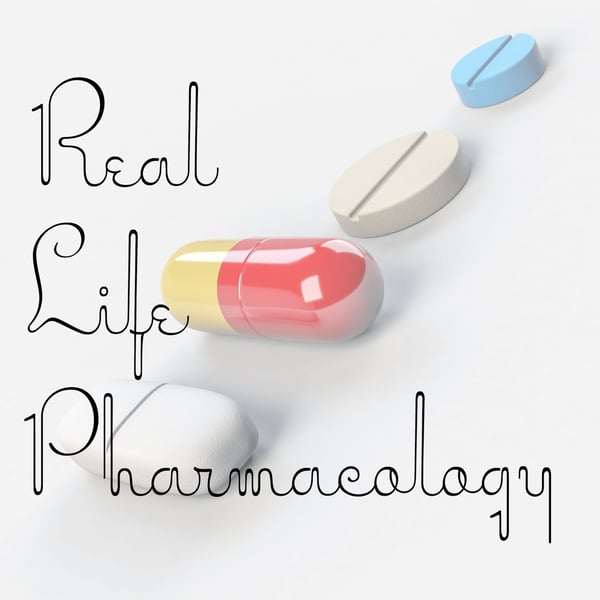Clopidogrel Pharmacology
Real Life Pharmacology - Pharmacology Education for Health Care Professionals
Eric Christianson, PharmD; Pharmacology Expert and Clinical Pharmacist
5 • 716 Ratings
🗓️ 4 July 2019
⏱️ 14 minutes
🧾️ Download transcript
Summary
The risk of bleed is a high priority with the use of clopidogrel. Patients must be monitored for signs and symptoms of bleeding and bruising.
Clopidogrel is a prodrug that is converted to its active metabolite by CYP2C19.
Fluconazole can inhibit CYP2C19 which may reduce the effectiveness of clopidogrel.
Transcript
Click on a timestamp to play from that location
| 0:00.0 | Hey all, Eric Christensen, pharmacist back here with the Real Life Pharmacology podcast. |
| 0:06.0 | Today I'm going to cover Clipidogrel. |
| 0:09.0 | Brand name of that medication is Plavix. |
| 0:12.0 | And this is classified as an anti-platelet agent. |
| 0:16.0 | In practice, this medication is definitely used on a relatively frequent basis. |
| 0:23.7 | One really important thing that comes to mind within the drug's mechanism of action, |
| 0:30.5 | and I'll talk a little bit more about this too as we get into drug interactions, |
| 0:35.9 | but clopidigril is what's called a pro-drug. |
| 0:38.9 | And that means that the drug is given, and the active ingredient, the active component |
| 0:45.0 | within that medication is not actually active right away. |
| 0:52.1 | So what happens is the drug is absorbed and the drug is converted into |
| 0:59.0 | by the body into the active form that actually has the physiological anti-platelet type effects. |
| 1:09.0 | So that's what a pro drug is, basically a drug that needs to be converted by the body into its |
| 1:16.3 | active form. |
| 1:18.9 | So again, I'll talk a little bit more about this in some of the warnings and adverse effects |
| 1:24.7 | as well as potentially touch on drug interactions as well. |
| 1:29.2 | So when we think about classifications and anti-platlet agents, |
| 1:33.5 | you've got to remember what we're trying to do with these medications, |
| 1:37.4 | and it's virtually always trying to prevent platelets from aggregating together and ultimately prevent |
| 1:48.0 | blood clots and things of that nature, where we stop the blood flow. |
| 1:55.0 | And two of the most important situations are in the heart where we can have a myocardial infarction where |
| 2:03.5 | basically blood flow is at least limited and potentially even totally blocked. We've also got the |
... |
Please login to see the full transcript.
Disclaimer: The podcast and artwork embedded on this page are from Eric Christianson, PharmD; Pharmacology Expert and Clinical Pharmacist, and are the property of its owner and not affiliated with or endorsed by Tapesearch.
Generated transcripts are the property of Eric Christianson, PharmD; Pharmacology Expert and Clinical Pharmacist and are distributed freely under the Fair Use doctrine. Transcripts generated by Tapesearch are not guaranteed to be accurate.
Copyright © Tapesearch 2025.

